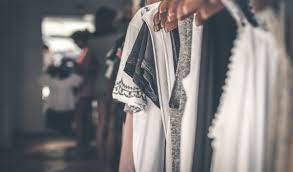Revolutionizing the Industry: How Sustainable Fashion is Changing the Game
In recent years, sustainability has become a buzzword in various industries, and fashion is no exception. With growing concerns over climate change and environmental degradation, the fashion industry has come under scrutiny for its negative impact on the planet. However, a new movement known as sustainable fashion is challenging the status quo and revolutionizing the industry. This article will delve into the concept of sustainable fashion, its benefits, and how it is changing the game for both consumers and fashion brands.
Sustainable fashion, also known as eco-friendly or ethical fashion, refers to the production, design, and consumption of clothing that takes into account the environmental and social impact of the fashion industry. This encompasses a range of practices, including using recycled materials, reducing waste, promoting fair trade practices, and reducing carbon emissions. Sustainable fashion aims to create a more environmentally and socially responsible fashion industry that considers the entire lifecycle of a garment, from production to disposal.
One of the key benefits of sustainable fashion is its positive impact on the environment. Traditional fashion production methods are notoriously harmful to the planet, with the industry being one of the largest contributors to pollution, waste, and water consumption. Sustainable fashion seeks to minimize these impacts by implementing eco-friendly practices such as using organic and natural fibers, reducing water usage and waste, and promoting recycling and upcycling.
Moreover, sustainable fashion also addresses the social aspect of the industry. Many fast fashion brands rely on exploitative labor practices, with workers in developing countries often enduring unsafe working conditions, low wages, and long hours. Sustainable fashion brands prioritize fair trade practices, ensuring that the workers involved in the production process are paid fair wages and work in safe environments. By supporting ethical fashion brands, consumers can contribute to the improvement of working conditions and overall social welfare.

In addition to its environmental and social benefits, sustainable fashion also offers unique design opportunities. With the rise of eco-friendly materials, such as organic cotton, hemp, and recycled fabrics, sustainable fashion brands are proving that style and sustainability can go hand in hand. These brands are challenging the belief that eco-friendly clothing is limited to drab and basic designs, showcasing innovative and fashionable garments that cater to the demands of conscious consumers.
Another significant aspect of sustainable fashion lies in its ability to encourage a shift towards conscious consumerism. With greater awareness about the detrimental impact of fast fashion, more consumers are seeking alternatives that align with their values. Sustainable fashion empowers consumers to make informed choices, encouraging them to invest in high-quality, timeless garments rather than constantly buying low-quality, disposable items. By choosing sustainable fashion, consumers can contribute to building a more sustainable and circular fashion economy.
The rise of sustainable fashion has forced the entire industry to take notice, leading to positive changes across the board. Established fashion brands are now making efforts to incorporate sustainable practices into their production processes and designs. They are partnering with sustainable organizations, investing in eco-friendly technologies, and adopting circular economy principles. This shift towards sustainability not only benefits the environment but also helps to create a positive brand image and attract eco-conscious consumers.
Furthermore, sustainable fashion has opened up new avenues for entrepreneurship. Many individuals are recognizing the potential of sustainable fashion and starting their own eco-friendly brands. From small-scale startups to established fashion houses, there are now countless options for consumers to choose from, ranging from sustainable activewear to ethical accessories. This growing market provides opportunities for designers, entrepreneurs, and artisans looking to contribute to a more sustainable future.
Trend Alert: The Hottest Accessories You Need in Your Wardrobe
In conclusion, sustainable fashion is revolutionizing the fashion industry by offering a viable and ethical alternative to traditional fashion practices. With its environmental, social, and design benefits, sustainable fashion is changing the game for both consumers and fashion brands. The movement towards sustainability not only helps to mitigate the negative impacts of the fashion industry but also encourages conscious consumerism and promotes a more responsible, circular economy. As the demand for sustainable fashion continues to grow, the industry must adapt and evolve to meet the needs of a more environmentally and socially conscious consumer base.

